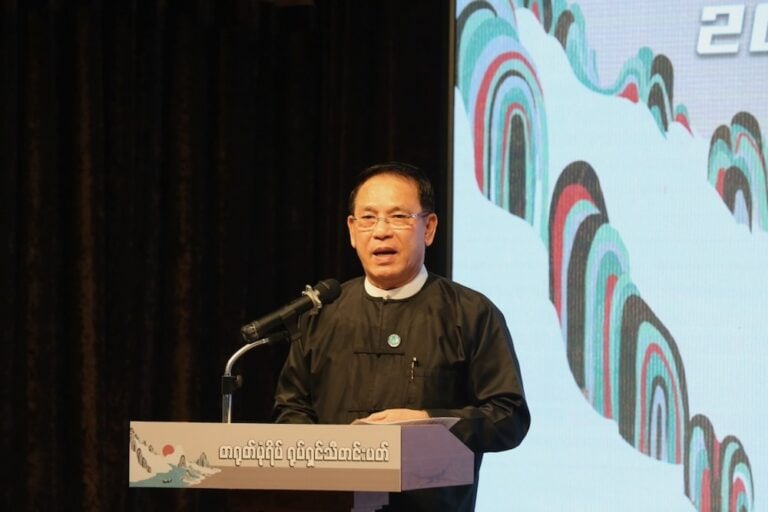The Burmese Army's filing of criminal charges against The Voice Daily newspaper editor and a satirist is an alarming and emblematic example of the threats to press freedom and freedom of expression in the country.
This statement was originally published on seapa.org on 18 May 2017.
The Myanmar Army’s filing of criminal charges against The Voice Daily newspaper editor Kyaw Min Swe and satirist Kyaw Zwa Naing (pen name: “British Ko Ko Maung”) is an alarming and emblematic example of the threats to press freedom and freedom of expression in the country.
The lawsuit, which stemmed from a 26 March 2017 satirical article on the country’s peace process by British Ko Ko Maung, is a cause for serious concern because of three reasons:
1. The lawsuit undermines the country’s law governing the media.
The army filed the lawsuit before a mediation process on their complaint under the Myanmar Press Council was completed. The Press Council is forced to refrain from acting on the complaint the Army filed earlier, because under the News Media Law of 2014, the Press Council is prohibited from mediating cases under police investigation or court jurisdiction. Lawsuits like the Army’s move against The Voice weakens the only existing official complaint mechanism for cases involving the media.
2. The army used Article 66(d) of the Telecommunications Act of 2013 in the lawsuit.
As of today, there are 66 cases[1] involving the use of Article 66(d) of the 2013 Telecommunications Law for online defamation. The alarming number indicates that those who use the law – especially public officials – have found a potent weapon to criminalize critical online speech, mostly through Facebook.
Of this number, there are seven cases filed against 12 journalists. The use of this law against journalists threatens the entire media community, as they may fear facing a possible five-year jail term if convicted under article 66(d).
3. The Myanmar Army’s response to the article reflects intolerance to critical opinion.
The article in question is satirical and does not even critically refer or allude to the Army, or any armed group for that matter. It is titled with a humorous play on the title[2] of an army-produced movie but generally highlights the levels of violence in Myanmar society/
As a public institution, especially now that the country is led by a popularly-elected government, the military should be more open to comments and criticism from the public and the media community.
Notes:
[1] Data from “Analysis and Recommendation Report for the Amendment of the Telecommunication Law” by the Research Team of the campaign group Committee for Amending the Telecommunication Law. See PEN Myanmar’s Facebook post on the number of cases
[2] The piece titled Kyi Htaung Su Thitsar – meaning “oath made in a nation of bullets” – was a satirical play of words of the title Pyi Htaung Su Thitsar that can be translated as “Union Oath,” which aired in the Army-owned TV channel early March 2016.



